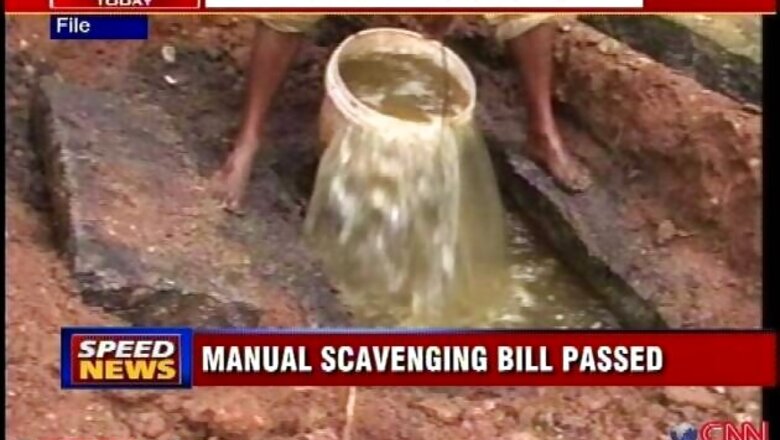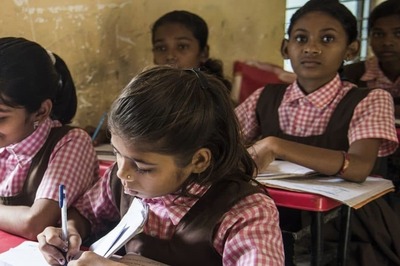
views
New Delhi: A bill seeking to prohibit employment of individuals as manual scavengers by prescribing stringent punishment including imprisonment up to five years, to those employing such labour was passed by Parliament on Saturday.
The bill has provisions for providing for rehabilitation of manual scavengers and their family members as well. It has a wider scope for higher penalties than the 1993 Act. Offences under the Bill shall be cognisable and non-bailable and may be tried summarily. The penalty could be up to five years imprisonment.
The bill, which had got a strong push from Congress President Sonia Gandhi and seeks to wipe out this "social stigma" by arranging for alternative jobs and providing other provisions to those in such work and their families got the unanimous approval of Rajya Sabha on Saturday after getting an approval from the Lok Sabha on Friday.
Moving the Prohibition of Employment as Manual Scavengers and their Rehabilitation Bill, 2013 in the Rajya Sabha, Minister for Social Justice and Empowerment Kumari Selja said the new bill had to be brought in as the earlier Act did not prove very effective. She said the "main inspiration" behind the bill to remove the "dehunamising practice" is Sonia Gandhi, who "actively pursued" this.
The was introduced in Lok Sabha in September 2012 by then Minister of Social Justice and Empowerment Mukul Wasnik. The bill was thereafter referred to the Standing Committee on Social Justice and Empowerment, under the Chairmanship of
Dara Singh Chauhan.
The existing laws are not stringent and prove inadequate in elimination of the evils of manual scavenging and insanitary latrines. Hence there was a need for the new law, he said.
Under the new law, each occupier of insanitary latrines shall be responsible for converting or demolishing the latrine at his own cost. If he fails to do so, the local authority shall convert the latrine and recover the cost from him.
Each local authority, cantonment board and railway authority is responsible for surveying insanitary latrines within its jurisdiction. They shall also construct a number of sanitary community latrines.
"Such latrines, where manual scavenging happens, will have to be demolished, otherwise somebody will be engaged to do it," Selja said, adding government will chip in with financial help.
Members from Left parties including D Raja (CPI) moved a number of amendments to the bill, which were negated and the bill was passed unanimously. The minister said the Bill aims to provide for prohibition of employment as manual scavengers, rehabilitation of those involved in this work and their families.
"The bill has penal provisions for those, who engage the manual scavengers," she said, adding elimination of dry latrines and insanitary latrines are on high priority for the government.
Despite prohibition of manual scavenging, the practice is still prevalent. These evils are inconsistent with the right to live with dignity, she said. "This dehumanising practice is inconsistent with the right to live with dignity," Selja said, adding a need was felt for a stringent law.
"We want to remove the stigma and blot on the society," she said, calling for a "change of mindset" to end the menace. Selja also expressed the hope that a strong law would also help erase the practice from the society.
Referring to the continuance of this practice, she said all states were in "denial mode" and had earlier stated that this practice did not exist in their areas. "When we are not ready even to accept that this practice exists, how can we remove this," Selja posed.
(With additional inputs from PTI)



















Comments
0 comment